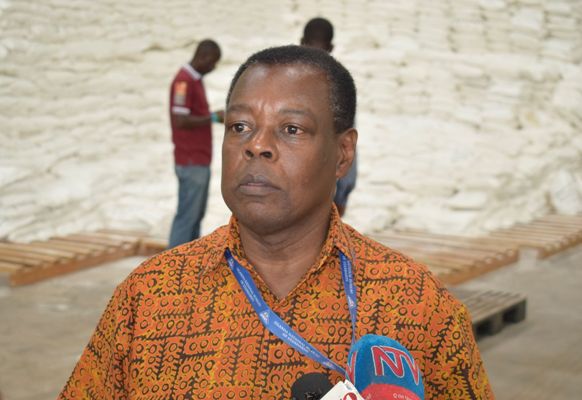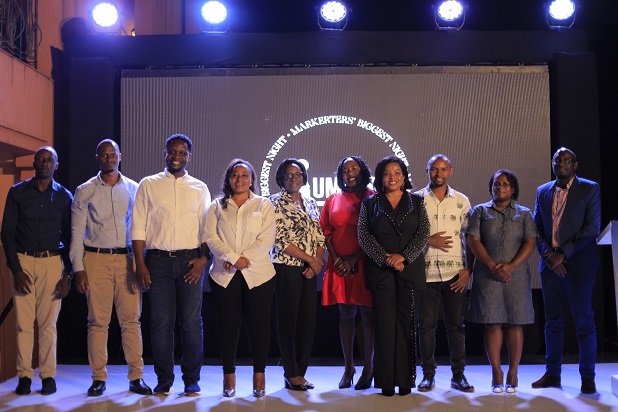The cabinet has approved proposals for a new law that will give the Uganda Railways Corporation-URC, more powers over its properties, as well as protection from private competition.
The approved proposals have now been handed over to parliament for scrutiny by the relevant committees, according to the Minister for Works and Transport Edward Katumba Wamala. If passed by parliament, the amendment will lead to improvements in the Uganda Railways Corporation Act 1998, which is considered to be inadequate in responding to the current situation.
The review of the law is taking into consideration the stand by President Yoweri Museveni that bulk cargo railway services should be reserved for the Uganda Railways Corporation, while private players can go into passenger transport. This, according to him, will offer the government agency the needed market share to make it more sustainable as a business.
Minister Katumba Wamala says the review is part of the efforts to revive the railway system especially as business between Uganda and other countries grows, and to protect the road network.
The government has struggled for more than three decades to revive the railway which was the main player in the transportation of imports and exports in colonial and earlier independence days. The system was run down in the subsequent governments and the economic liberalization policy in the late 1980s and early 90s contributed to its near collapse.
But the ministry carried out a Regulatory Impact Assessment which showed the performance of the rail industry in Uganda was far from optimum, citing causes like ineffective service, inadequate rolling stock, encroachment on railway land, low demand for railway services and poorly regulation of the services.
Gen. Wamala is optimistic that the network will be fully revived, pointing to the ongoing projects on the central and northern rail lines.
The Uganda Law Reform Commission which recently came up with a consultation paper on the review of the URC Act says that the ongoing effort is intended to enable a robust socio-economic investment climate that boosts Uganda’s market competitiveness by reducing the costs of doing business nationally, regionally and internationally. It also hopes that the review shall ensure cheap and timely movement of raw materials of production within Uganda and across the East African region.
Hannington Karuhanga, the Chairman of the URC Board of Directors says he hopes their submissions will be upheld in a new law, saying this would enable the corporation to meet the demands.
Karuhanga says many challenges could not make them progress much, including the termination of the Rift Valley Railway concession. He says they continue to demand the compensation of their properties taken over by other agencies and the private sector, as well as the recovery of the assets in other countries or the sale of those dilapidated.
According to him, if the corporation recovered its assets and compensations it would be almost fully self-sustaining.
Gen Wamala adds that the government regrets having hired a private investor to develop, maintain and operate the system, saying this cost the government money and time which could not be recovered.
The corporation and ministry are also happy that the parliament has finally approved a new African Development Bank loan which they will use for the execution of new and ongoing projects, including the acquisition of wagons and locomotives and ferries.
In May last year, Parliament approved a government request to borrow 216.7 million euros from the African Development Fund, 84.41 million euros from the African Development Bank, and 25.9 million euros from the Corporate Internalisation Fund of Spain. The monies totalling approximately 1.4 trillion Shillings were to facilitate the refurbishment of the Kampala-Malaba Metre Gauge Railway Project.
Gen. Wamala says that for new railway line projects, the government will no longer build meter gauge railways, but standard gauge, including the planned reconstruction of the Kasese line because it was completely uprooted. He adds that the government is studying the laws to see if they can abandon the agreement with the proposed Chinese funders who are delaying the project.
State Minister for Works Musa Ecweru says the works on the Northern line must be completed within this term of government, urging all people on the railway land to vacate before force is used.
Other members of the board led by Karuhanga are Florence Kabahweza Hashaka, Grace Karugaba, Robert Kafeero Ssekitoleko, Abdallahtiff Wangobo Dhakaba, Richard Nkuuna, Michael Obalim and Stanley Sendegeya, the Managing Director.
–URN





